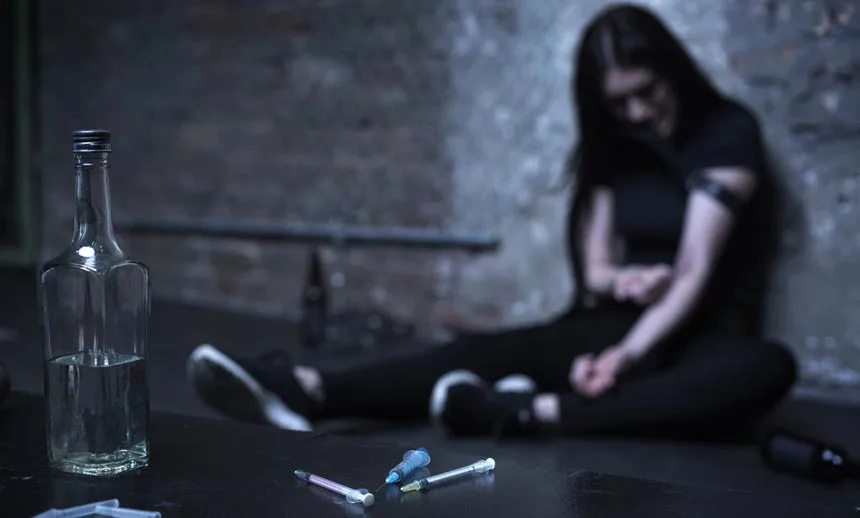More on Demi Lovato’s Addiction Story
Table of Contents
Over 21 million Americans struggle with addiction each passing year, yet so few get the treatment they need in order to live a healthy and prosperous life. To pass on an inspiring message, we’re relating Demi Lovato’s addiction story, and how she arrived at sobriety and recovery from addiction.
Approximately 10% of people living in the United States are able to seek help for addiction, while the remaining 90% suffer in silence — too afraid to speak up and admit their problem because of the stigma and judgment that surround addiction.
And while we, as people, so harshly criticize and shame those who have fallen down the hard path of drugs, we forget something very important — addiction doesn’t discriminate.
Keep reading to learn about the Demi Lovato addiction story, and how you can get help if you too are struggling with drugs or alcohol.
The Reality of Drug Addiction
Regardless of one’s life accomplishments, societal roles, and stature, addiction can sink its dangerous claws in just about anyone. Even the fame and success of a Hollywood celebrity don’t deter the ability to fall victim to substance abuse. And there’s no one better to attest to that statement than singer, songwriter, and actor Demi Lovato.
Since the time they were 17, Demi has struggled heavily with addiction, eating disorders, and mental illness. Their journey to sobriety is a harrowing one but comes with a wealth of lessons we can learn from. From the start, Demi Lovato has been very transparent about her struggle with substance abuse in hopes that it will help others who are fighting the same battle.
Demi’s Family History of Addiction

Addiction touches the lives of millions around the world, and for Demi, her first indirect encounter with substance abuse came at a very young age. Lovato’s biological father was a heavy user of drugs and alcohol.
In his intoxicated rages, he would often abuse Demi’s mother, which Demi often witnessed as a child and can clearly recall many of his violent outbursts. In addition to his jaded relationship with substance abuse, Demi’s father was diagnosed with schizophrenia and bipolar disorder.
Together, his mental illness only fueled his addiction and made life extremely difficult for his family.
It’s all a well-known fact within the addiction recovery community that those who struggle with an untreated mental health disorder are more likely to develop a substance use disorder than those who do not.
How Common is Self Medicating for Those Who Abuse Drugs?
More often than not, individuals with a mental illness self-medicate with illicit drugs to subdue the intrusive thoughts and negative symptoms associated with the disease. Unfortunately, this was the case for Demi’s father. It’s also important to note that one’s genetics plays an integral role in their susceptibility to addiction and mental illness later in life.
Since Demi’s father struggled with mental illness and addiction, the odds were, unfortunately, stacked against her. And she only got worse when Demi decided to experiment with cocaine for the first time at 17 years old.
The combination of her father’s struggle with addiction and mental illness and the push to become a child star truly robbed Demi of any semblance of a normal childhood. While she didn’t know it then, this would be the catalyst that started her quick descent down the dangerous path of addiction.
Demi Lovato’s Battle with Addiction and Mental Health Disorders
Demi has fought through a long and challenging battle with drug use and addiction that has resulted in many relapses and one nearly fatal overdose. Aside from her family history of substance abuse and mental health, the pressure she endured as a child star and rising artist truly took a toll on her well-being — changing the trajectory of her life for years to come.
As a child, Lovato made her first T.V. appearance on the beloved children’s show “Barney and Friends.” While her fun-loving and bubbly character on television was heartwarming and endearing, life outside of the show was quite the opposite.
Adverse Childhood Events and Their Ongoing Effects
In her younger years, Demi was constantly taunted by and bullied at school. Her fellow classmates called her terrible names, even going as far as calling her fat. As a result, Demi developed an eating disorder as a young teen and still battles with it to this day.
After success on “Barney and Friends,” Demi’s acting career progressed to the infamous Disney Channel. Here, her acting career soared, and her singing career started to take flight as well. Life seemed pretty amazing for Demi, but, unfortunately, she was beginning to battle with a large score of demons. As a Disney star, Demi was under a significant amount of pressure to maintain the squeaky-clean life that was required of her.
Not to mention, she was working hard to balance both acting and singing careers. Life on the road had its challenges for Demi, and they were starting to catch up with her. By the age of 17, Demi was experimenting with cocaine and later progressed to alcohol, Adderall, and Xanax.
Demi Lovato and Bipolar Disorder
After a year-long spiral, Demi was admitted into an addiction treatment center for the first time in 2010 to address her problems with self-harm, bulimia, and substance abuse. During her treatment, Lovato was diagnosed with bipolar disorder, which proved to be an eye-opener and explained some of her erratic behavior leading up to admission.
In January 2011, Lovato left rehab and resumed her normal responsibilities. Unfortunately, Demi decided not to utilize the tools and strategies she had learned in treatment, and not only resumed her regular responsibilities but a precarious lifestyle, too.
In reflecting on her actions after her first stint in rehab, Lovato states, “I wasn’t working my program. I wasn’t ready to get sober. I was sneaking [cocaine] on planes, sneaking it in bathrooms, sneaking it throughout the night — nobody knew.”
Demi was once again caught in a vicious cycle of drinking and abusing cocaine, which only intensified her struggle with bulimia, bipolar disorder, depression, anxiety, and suicidal tendencies. This dangerous binge lasted until the spring of 2012, and after a few months of sobriety, she checked herself into a sober house. From there, Demi worked hard on her recovery and stayed sober for six years.
A Turning Point in Lovato’s Sobriety

After six beautiful yet challenging years of sobriety, Demi took to social media to announce the release of their new song, “Sober.” However, many fans noted that the lyrics of this new hit single seemed to imply that Lovato was once again struggling with her addictions. A month later, in July 2018, these suspicions were validated. The news broke that Lovato was rushed to the hospital for an overdose.
Lovato’s Continued Drug Abuse and Near-Death Experience
The months leading up to her nearly fatal overdose were some of the worst Lovato has ever experienced. Their addiction relapse completely spiraled out of control, and she began to experiment with a whole new class of drugs, including heroin abuse.
Lovato’s recreational use of heroin soon turned into a compulsive and physical dependence that she couldn’t shake. In her documentary series on YouTube, Lovato explains that one night they attended a party where she used meth and a plethora of other substances, including Molly, crack cocaine, marijuana, OxyContin, and alcohol all in one night.
This combination of opioids, depressants, and stimulants is exceedingly dangerous and, more often than not, deadly. These drugs alone should have ended her life that night, and it’s nothing short of a miracle that they didn’t.
That night, Lovato may have dodged a severe overdose, but the turning point in her continued substance abuse didn’t occur until the night of her near-fatal overdose in July 2018. Before her overdose, Lovato told her friends she was heading to bed but wound up calling her dealer for heroin instead.
The next morning, her assistant found Demi unresponsive in her room and promptly called 911. Once the paramedics arrived on the scene, they administered Narcan in an attempt to save her life. Demi was immediately hospitalized, where she experienced three strokes and a heart attack, from which Lovato suffered brain damage and several other long-lasting effects.
Lovato was in a severe physical decline, and soon, her body went into multiple organ failure. If it wasn’t for the relentless and valiant efforts of her doctors and surgeons, Lovato could have died in the hospital.
Due to these drastic effects on her body, it was later suspected that instead of ingesting heroin, her dealer provided her with fentanyl instead. Lovato’s overdose left her with some life-changing deficits, including brain damage and blind spots in her vision from the multiple strokes she sustained.
Overcoming Her Substance Use At Last
After her near-death experience, Lovato checked out of the hospital after she was deemed stable and checked in for treatment once again. In a heartfelt Instagram post, Lovato opened up about her experience, writing:
“I have always been transparent about my journey with addiction. What I’ve learned is that illness is not something that disappears or fades with time. It is something I must continue to overcome and have not done yet. I want to thank God for keeping me alive, and well…I want to thank my family, my team, and the staff at Cedars-Sinai who have been by my side this entire time.
Without them, I wouldn’t be here writing this letter to all of you. I now need time to heal and focus on my sobriety and road to recovery. The love you have all shown me will never be forgotten and I look forward to the day where I can say I came out on the other side. I will keep fighting.”
Since her 2018 overdose, Demi had worked tirelessly on her recovery and has remained sober ever since. It’s taken her many years and countless relapses, but the singer, songwriter, and actress is finally working on her self-worth, embracing long-term recovery and sobriety, and adjusting her lifestyle so that it promotes a healthy healing environment.
It’s Okay to Ask for Help
Admitting that you have a problem and are struggling with addiction is the first and most important step in the recovery process. Even though the stigma of drug addiction is, sadly, still widely prominent, don’t let it deter you from wanting a better life for yourself. Addiction is a chronic disease that knows no bounds, and there are countless people out there who are fighting the same battle as you are. Demi Lovato’s recovery journey is a great example of this.
It’s okay to admit you have a problem. It’s okay to ask for help. Once you accept this concept, seeking treatment becomes more doable, and you can start the recovery process with an open mind. However, it’s important to understand the necessity of seeking treatment with the right professional facility.
Let those who are trained to treat substance abuse help you through this important process — don’t try to get sober on your own. More times than not, individuals who are struggling with addiction believe that they can conquer their substance abuse on their own. This is a common and dangerous misconception, as detox and withdrawal can be dangerous if not closely monitored by a medical professional.
The Importance of a Strong Support Network

You should never go through recovery alone. With the right facility, you’ll have the support system and strong community ties you need to tackle your addiction head-on. Importantly, it’s up to you to decide the type of facility you want to get sober in.
Do you live in an environment that you believe can help you sustain your sobriety while in treatment? If so, then an outpatient addiction treatment facility may be a good option for you. In outpatient treatment, patients can resume their normal schedule and responsibilities while receiving treatment on a daily basis.
On the other hand, inpatient treatment facilities require patients to live within the facility until they have successfully completed treatment. This enables patients to focus solely on their recovery without getting distracted by the stressors of everyday life.
Regardless of whether you take the residential treatment or outpatient facility route, when you enter treatment, you will be met with a team of therapists, counselors, and medical specialists. These professionals will work with you to develop a tailored treatment plan that addresses all of your recovery needs.
A Clean and Sober Life is Possible
Demi Lovato’s harrowing experience with addiction is a story of caution and inspiration — through the worst of it, she never gave up on their journey to achieve sobriety. Hopefully, this story will allow you to find the strength within yourself to seek help for your own struggle with addiction and mental health. A clean and sober life is possible to achieve — all you have to do is ask.
At Find Addiction Rehabs, we are here to help you make that important step toward a brighter and sober future. Our team is ready and able to assist you in locating the best addiction treatment facility that will tend to your specific substance abuse and mental health needs. When you’re ready, give the professionals at Find Addiction Rehabs a call to get started on your journey to sobriety.
Eric R. hails from Maine and does extensive work in the field of behavioral health as both a professional writer and passionate advocate for those suffering. From his own personal encounters with mental illness, he speaks to those seeking healthy relief from depression and anxiety and embraces wellness both personally and professionally. After losing friends and family to the darkness of suicide, Eric aims to educate and inform about the nature of treatment and render it accessible for all those seeking a way out of darkness and despair.

